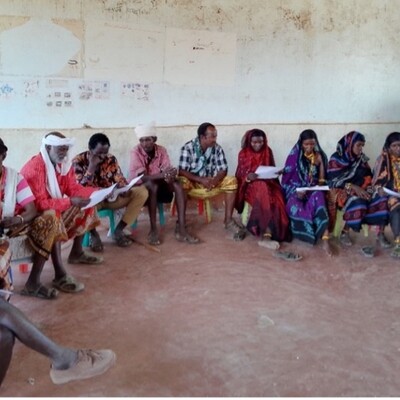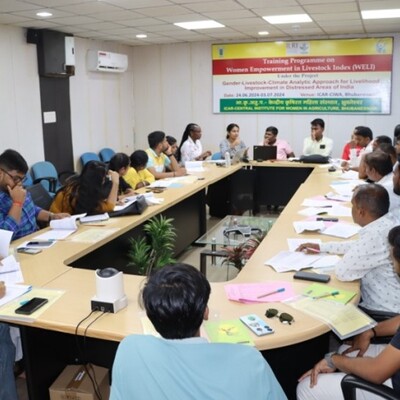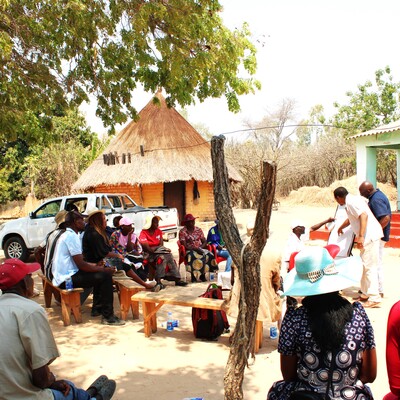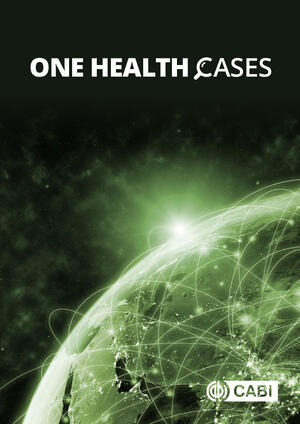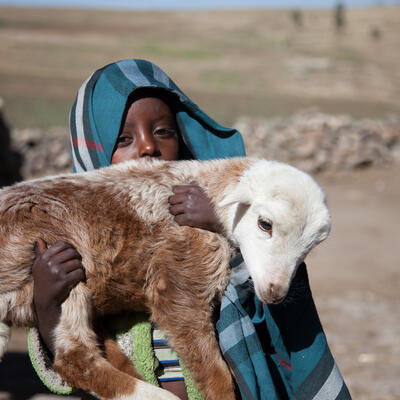

ILRI signs agreements with seven universities to collaborate on practical innovations for Ethiopia’s dairy sector
Ethiopia's dairy sector offers immense potential to enhance nutrition, strengthen food security and boost economic growth. The International Livestock Research Institute (ILRI), in collaboration with the Ethiopian government, plays a pivotal role in addressing systemic challenges in this sector such as genetic improvement, feed, livestock health and productivity enhancement through sustainable practices.
A key aspect of ILRI's work involves strengthening dairy value chains to ensure that benefits are equitably distributed among stakeholders. This includes facilitating access to reliable markets, enhancing value addition through processing and supporting policy development that fosters an enabling environment for the dairy sector. ILRI also emphasizes capacity building by providing training and resources to farmers, extension workers and policymakers, thereby promoting sustainable dairy farming practices and contributing to food security and economic development in the regions it serves.
In a significant step forward, the Ethiopian Ministry of Agriculture, in partnership with ILRI, unveiled the National Dairy Development Strategy in December 2023. This 10-year plan outlines a transformative approach to revitalizing Ethiopia’s dairy industry. Smallholder farmers, who produce 72% of the country’s milk, are at the heart of this strategy. However, their productivity is often constrained by limited access to dairy breeding programs, inputs and extension services.
ILRI has been implementing several innovative projects, including the Africa-Asia Dairy Genetic Gains (AADGG) project, to address these challenges. Since its launch in 2016, AADGG has focused on breeding high-performing, resilient dairy animals suited to Ethiopia’s diverse climatic conditions.

In collaboration with the Ministry of Agriculture, Livestock Development Institute and regional agricultural bureaus, AADGG has developed a comprehensive national database encompassing data from 60,341 farms and over 150,000 animals. This data is instrumental in identifying adaptable and high-yielding dairy animals for artificial insemination. Advanced genomic technologies and digital tools further support the project, enabling real-time data capture and offering e-learning and feedback systems for farmers and extension agents.
‘The AADGG project also integrates mobile technology to enhance farmer education. Through partnerships with platforms like iCow, over 26,500 farmers have received extension information via 10 million SMS messages, while an additional 5,300 farmers benefit from personalized advice on gestation, deworming and vaccination schedules. Funded by the Bill & Melinda Gates Foundation and the CGIAR Trust Fund, this initiative exemplifies ILRI’s commitment to leveraging technology for impactful outcomes,’ says Selam Meseret, AADGG’s national program coordinator.
In a further milestone, at the ‘Advancing dairy futures through collaboration’ workshop held on 18 December 2024, at its Addis Ababa campus, ILRI signed a memorandum of understanding (MoU) with seven Ethiopian universities: Adigrat, Aksum, Raya, Mekele, Jimma, Bonga and Ambo. This collaboration will boost the integration of academic research with practical applications to enhance the productivity and sustainability of the dairy sector in the next five years. The universities will play a crucial role by offering specialized curricula, engaging students in practical training and promoting entrepreneurship through the establishment of business incubation centres.
Fikru Regassa, state minister of agriculture, emphasized the potential of this collaboration to address diverse local challenges. Echoing this sentiment, ILRI director general Appolinaire Djikeng noted that the MoUs represent a collective commitment to impactful outcomes beyond the dairy sector, paving the way for more extensive partnerships.
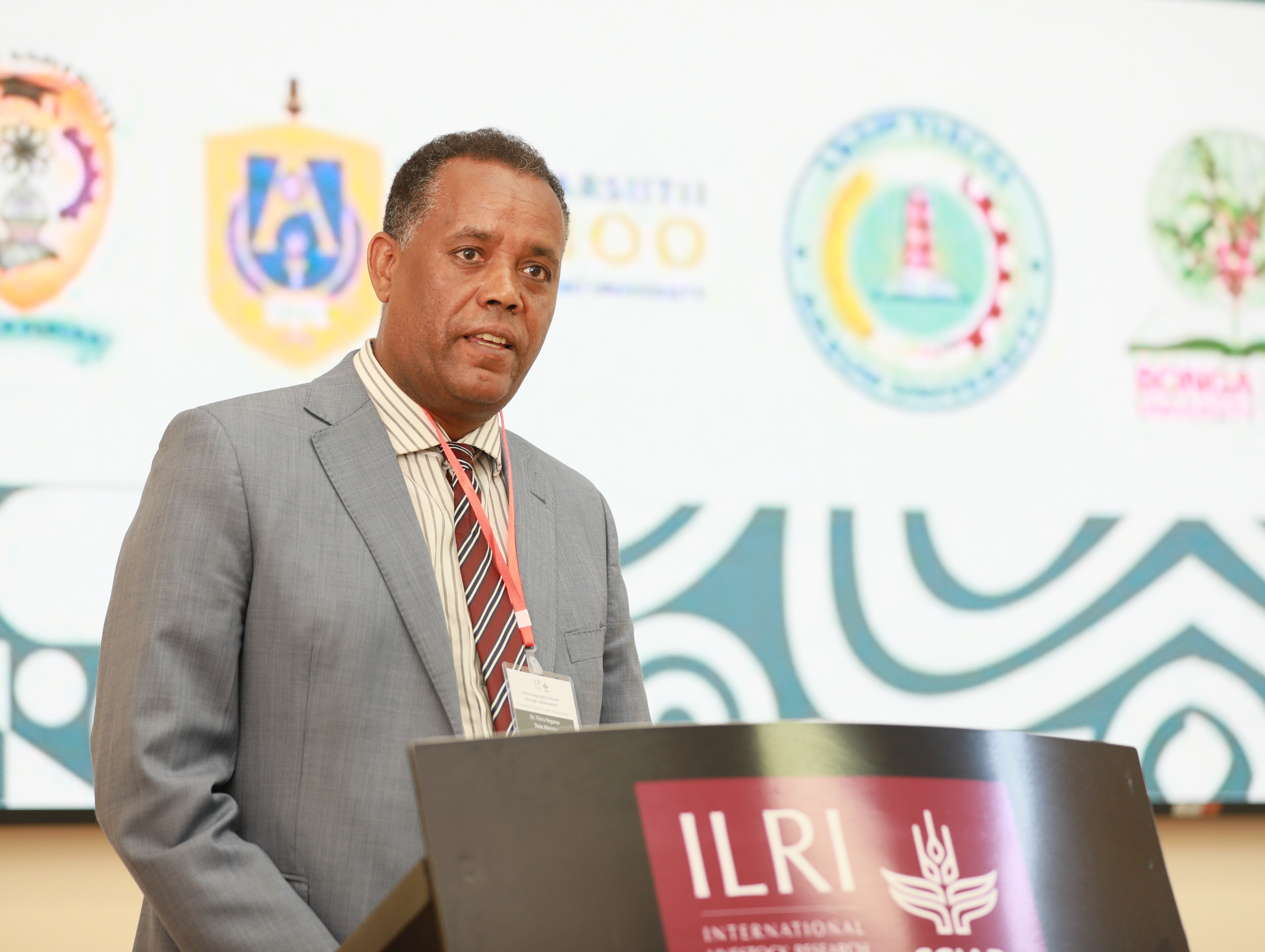
‘We are committed to enhancing livestock livelihoods by improving productivity through better livestock genetics, health, feeds and forage production practices, along with ensuring food safety across the entire value chain, from production to consumption. By tackling these challenges, we are confident that we can also contribute to reducing greenhouse gas emissions,’ Djikeng said.
The workshop provided a platform for knowledge exchange and collaboration, bringing together universities, research institutions and development partners to align efforts with Ethiopia’s National Dairy Development Strategy. Discussions emphasized the need for collaborative research, practical skill development and market-oriented approaches to address challenges effectively.
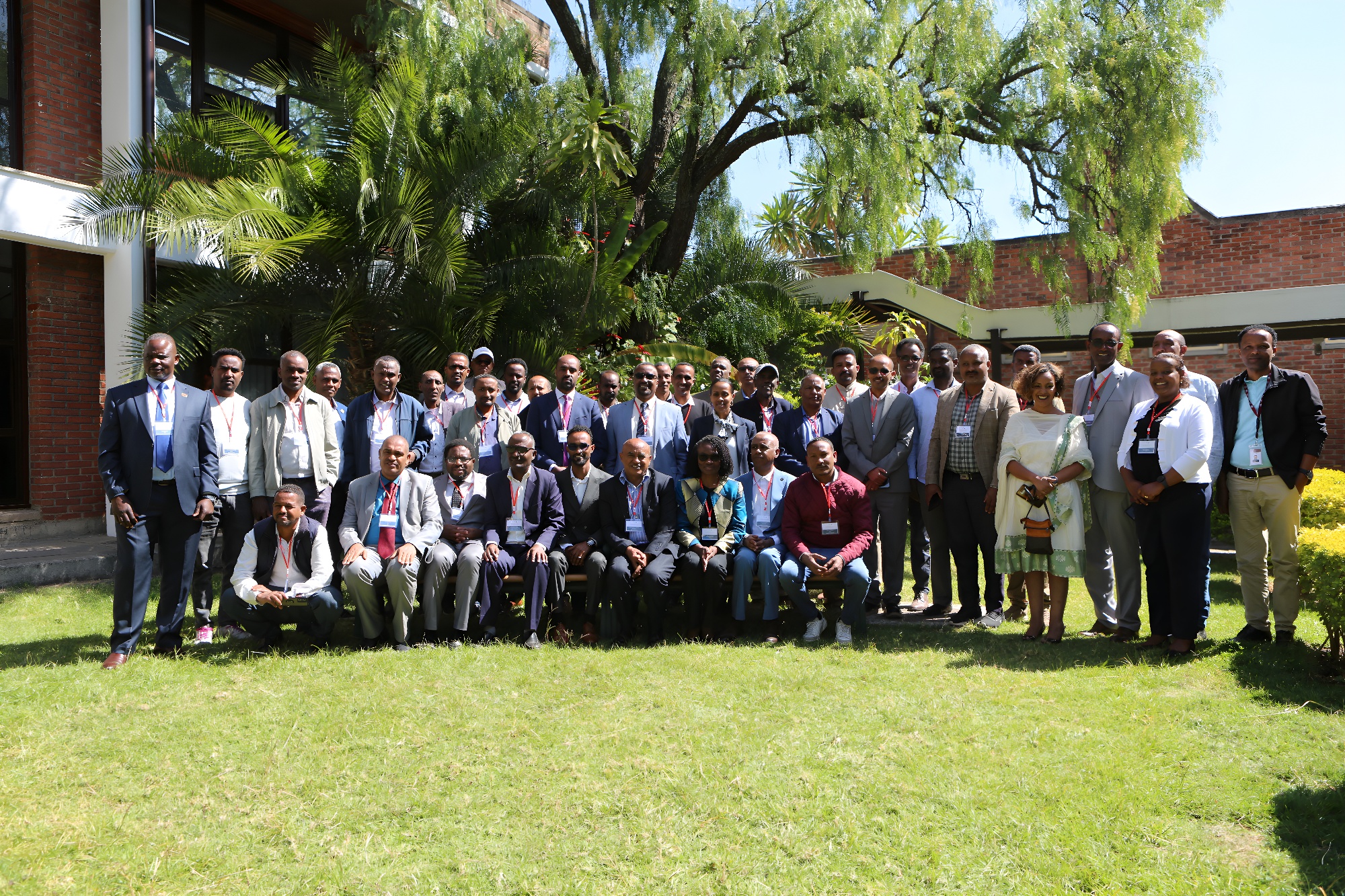
‘Our key challenges include enhancing productivity, improving breeds, ensuring better feeding practices and feed quality, advancing animal health and husbandry, strengthening livestock information systems, and addressing biosecurity and food safety across value chains. Equally critical is creating investment opportunities to enable farmers to run viable livestock businesses while promoting private sector commercialization for sustainable livelihoods,’ Fikru added.
Universities are key to the resolution of these challenges, integrating teaching, research and community service to prepare a skilled workforce while addressing the practical needs of the dairy sector. However, gaps in aligning educational outcomes with industry demands remain a challenge.
The workshop further emphasized the need for action-oriented and collaborative research involving academia, industries and farmers during the planning phases. This inclusive approach ensures that research outputs are practical and directly address sector challenges. Strengthening partnerships across these stakeholders is vital to creating actionable solutions that enhance the productivity and sustainability of Ethiopia’s dairy sector.
You may also like
Related Publications
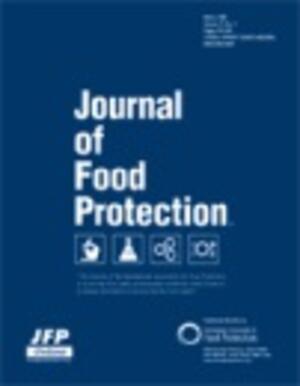
The impact of training intervention on levels of indicator bacteria and prevalence of selected pathogens in raw milk from smallholder women dairy farmers in Central Ethiopia
- Beyene, A.M.
- Nigatu, S.
- Archila-Godinez, J.C.
- Amenu, Kebede
- Kowalcyk, B.
- Degefaw, D.
- Mogess, B.
- Gelaw, B.
- Gizachew, M.
- Mengistu, A.
- Abdelhamid, A.G.
- Barkley, J.
- Yousef, A.

Training of animal health professionals in Mai Son district, Son La province, Vietnam
- Bui Ngoc Anh
- Nguyen Quang Huy
- Bui Nghia Vuong
- Unger, Fred

Training of livestock keepers on animal health in Muong Bon and Hat Lot communes, Son La province, Vietnam
- Bui Ngoc Anh
- Nguyen Quang Huy
- Bui Nghia Vuong
- Unger, Fred

Training of livestock keepers on animal health in Chieng Chung and Chieng Luong communes, Son La province, Vietnam
- Bui Ngoc Anh
- Nguyen Quang Huy
- Bui Nghia Vuong
- Unger, Fred





